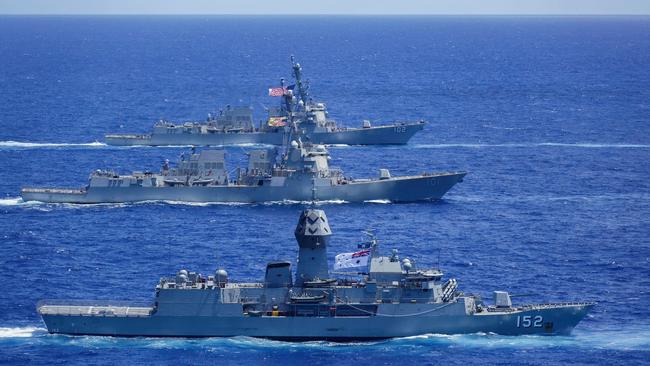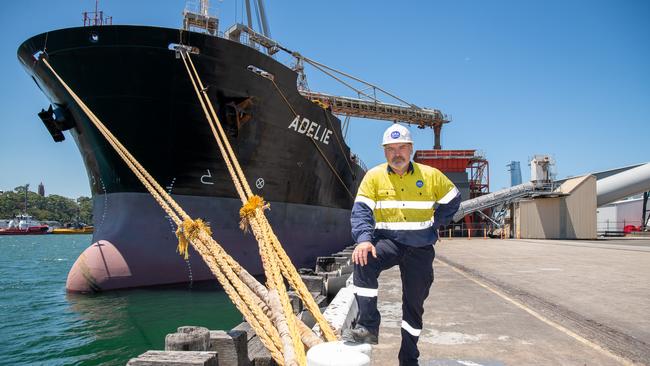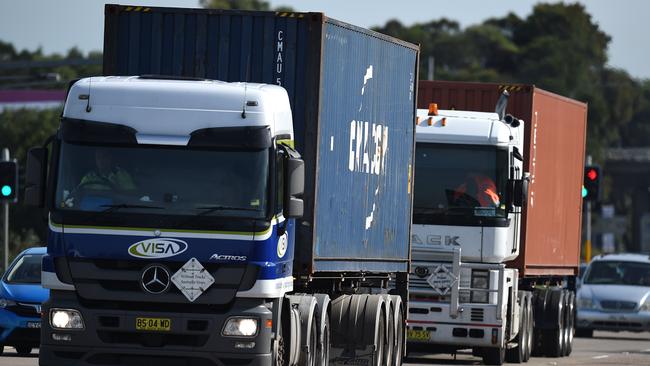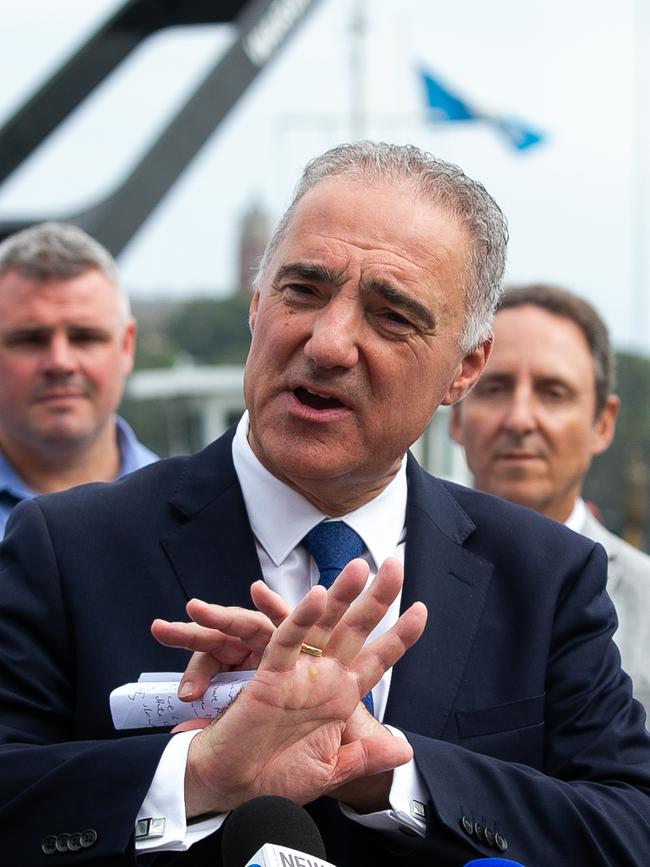Pressure on premier to back away from ‘millionaire’s row’ on Glebe Island
There is a rising tide of resistance as the government considers shutting down Glebe Island port and replacing it with high-density housing that opponents say would do nothing for Sydney’s housing crisis.
NSW
Don't miss out on the headlines from NSW. Followed categories will be added to My News.
Premier Chris Minns faces a rising tide of resistance over threats to shut down Glebe Island port, with fresh concerns emerging over defence, freight and environmental issues.
The unexpected hurdles have surfaced as his government considers whether to scuttle the port for high-rise apartments that opponents argue will only create a “millionaire’s enclave” and do nothing for the housing crisis.
The obstacles include a report commissioned by the NSW Government that suggests Glebe Island port is “irreplaceable”, and comments from Chief of the Defence Force David Johnston regarding Australia’s ability to conduct “combat operations” from its own shores.

Admiral Johnston told a conference in Canberra last week: “Perhaps finally we are having to reconsider Australia as a homeland from which we will conduct combat operations.
“That is a very different way … of how we think of national resilience and preparedness. We might need to operate and conduct operations from this country.”
The previous day, naval expert Jennifer Parker told The Daily Telegraph that Glebe Island was viewed as a “significant” asset by the Navy and shutting down the port could have ramifications for national security.
“There is a real issue with space to berth naval ships in Sydney Harbour,” Ms Parker, who once served as second in command of HMAS Darwin during 21 years in the Royal Australian Navy, said.
“This has been increasingly a problem over the last 10 years. It will become an even bigger problem with the Federal Government’s plans for expansion to the fleet. Anything that impacts that, does impact our national security.”
The government also released in recent days a report from the Freight Policy Reform Advisory Panel that says Glebe Island and other NSW ports play “an important role in the state’s freight industry”.

In noting there was “a significant shortage of industrial land available for freight purposes”, the report says there needs to be “careful consideration of the possible residential development at Glebe Island as homes and freight activity rarely coexist well and a port site cannot be replicated”.
One of 95 recommended actions in the report suggests: “Consider the proposal to rezone land at Glebe Island and White Bay for housing developments, noting that … port infrastructure of this kind is irreplaceable.”
Decarbonisation initiatives are also covered by the report with a short-term recommendation action, saying: “Continue to deliver the Towards Net Zero Emissions Freight Policy.”

The Working Port Coalition, fighting to retain the industrial hub at Glebe Island, wrote to the government late last year saying closure of the port would have environmental impacts, with more than 220,000 additional truck movements needed each year to freight materials to Sydney.
The coalition estimated an additional 18.5 million kilometres would have to be covered by trucks to bring construction and food products from Port Kembla or Newcastle, leading to increases in “commodity costs, traffic congestion, (and) carbon emissions”.
Coalition spokesman and Business Sydney executive director Paul Nicolaou told The Daily Telegraph: “In light of comments from Australia’s Defence Chief, the strategic importance of Glebe Island port as a working harbour has never been clearer.

“Glebe Island provides vital maritime capacity that could support logistical, defence, or emergency operations in a time of crisis. Keeping Glebe Island port operational is not just a matter of economic utility, it’s a matter of national security.
“In an era of growing regional uncertainty, dismantling or repurposing critical infrastructure like this would be short-sighted.”
A NSW Government spokesman said: “A review is currently being conducted that will inform the future of Glebe Island Port. This is a complex set of considerations and no decisions have been finalised at this stage.”



